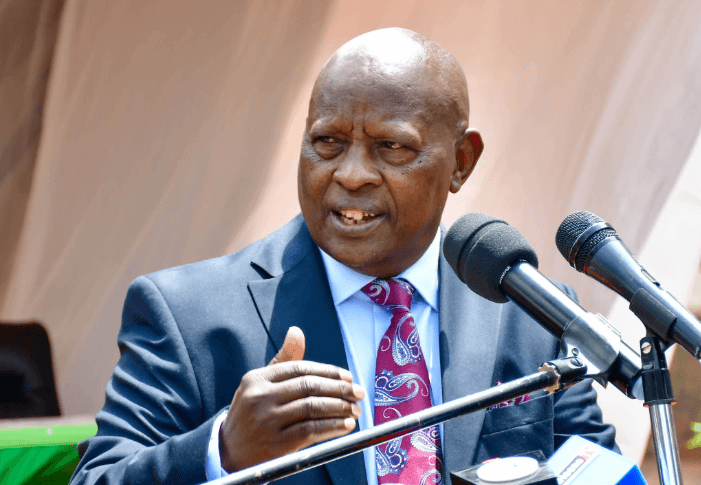On the ground floor of the University of Nairobi Mombasa campus, a moot court session is ongoing. It is a hot debate on whether teen lovers can be held responsible for sexual offences.
It’s a fictional case, in which a 17-year-old boy, Kipona Omar, is accused of raping a 14-year-old girl, Aisha Pendo, but the defence counsel says there was mutual consent and both were underage.
Aisha testifies before the court and narrates what happened on the day that defilement occurred. She says she was sent home from school for school fees and while on the way home, Kipona, the area chief’s 17-year-old son, grabbed her and defiled her in a nearby bush.
She says she was in shock. At home, she never mentioned the matter because she was ashamed and it wasn’t until her guidance counsellor reached out to her that she admitted what had happened.
She positively identified the perpetrator as Kipona.
Upon cross-examination, she admits that she knew Kipona, but she didn’t like him in “that way” (sexual or romantic manner).
However, Kipona testifies that he did not defile Aisha and what had happened was consensual sexual intercourse as he and Aisha had been flirting for a while and their friends knew about it.
Kipona’s father Hassan Omar tells the court the statements issued by Mwanaisha Pendo, Aisha’s mother, were entirely false.
He claims Mwanaisha and he had a brief relationship and since they ended the relationship, she has held a grudge against him.
She had threatened Hassan that she will lay false claims against him if he does not pay her a sum of Sh40,000.
This amount was duly sent to her one week after the alleged defilement.
We seek to create awareness on the criminal justice system and on crime prevention
MOOT COURT SESSION
On March 12, 2022, a moot court session was set up at the UoN Law School, whereby two schools, Oshwal Academy and Shimo la Tewa School, sent in their representatives (legal counsels) to argue the case before judges.
On this day, the individuals sitting in as judges are advocates of the High Court, who had been invited by the UoN Law School Mombasa campus to gauge the students’ prowess in law.
Three students from Oshwal Academy — Manav Devani, Farid Marwa and Kreeshi Shavdia — are defending a young boy accused of rape.
On the other hand, Shimo la Tewa’s Douglas Mwamboa, Thomas Mulwa and Crispin Otieno are representing the prosecution counsel.
“This teenage love story has been turned into a plan to victimise the child Kipona by the plaintiff,” says Marwa in her submission.
“They also want financial gains from the family. I submit that the court is not able to get any corroborative evidence from the young girl against the accused.”
She says the story of the two teens can be equated to the love story of Romeo and Juliet, as written by William Shakespeare in his bestselling novel of 1597.
Otieno counters Marwa’s submission, dismissing the analogy.
“Your Honour, this case does not in any way relate to the story of Romeo and Juliet as captured by Shakespeare. The Romeo and Juliet defence does not apply to a situation where physical force is used to obtain sex,” he says.
Otieno says the case before them can instead be compared to that of Titus Andronicus, which is characterised by violence, rape and fear.
Titus Andronicus is yet another novel by William Shakespeare believed to have been written between 1588 and 1593.
The submissions and counter-submissions, in this case, capture the attention of all the teachers, lawyers and students present during the moot court session.
The six students taking part in the moot court session are all aged between 14 and 17 years, and the case at hand is a real-life scenario.
Those from Shimo la Tewa are students from Form 2 and 3. Those from Oshwal Academy are in year 8 and year 12 of their British curriculum schooling.
They are all members of the recently established Law Clubs at their schools. The clubs are supported by the UoN Mombasa campus.
HOW CONCEPT AROSE
Dr Sarah Kinyanjui, the director of the UoN Mombasa campus, says in the recent past, the number of children in conflict with the law has risen.
Moreover, children are increasingly involved in not just petty offences but serious crimes as well.
This calls for crime prevention strategies, she says, and research indicates there are many factors that cause children to be in conflict with the law.
“Of particular concern, and which informs the law clubs' project, is an evident gap in legal information. For instance, there is a high number of children committed to borstal institutions and rehabilitation schools upon being found guilty of defilement,” Kinyanjui says.
An analysis of these cases shows that many of them engaged in consensual sexual activities, unaware of the repercussions.
Many children also end up in the child justice system as a result of petty drugs and substance abuse.
“There is an alarming trend of a rising number of children experiencing sexual and gender-based violence. Often, children are uninformed on how to respond to SGBV and where to seek assistance,” she says.
It was against this background that the University of Nairobi School of Law's Mombasa campus Legal Empowerment Programme (Msalep) was launched.
The High School Law Clubs were conceived as platforms through which children would be empowered to shun crime, stay safe from SGBV and pursue assistance if they experience SGBV, Kinyanjui says.
The project is being done in collaboration with the United Nations Development Programme, European Union and Amkeni Wakenya project.
For posterity, the project is also geared towards equipping high school students with information on law careers and nurturing future justice defenders.
Kennedy Asige is a law lecturer at the UoN Mombasa campus. He has been going around Shimo La Tewa and Oshwal Academy to train the students.
Asige says they are now planning to open more law clubs in public and private secondary schools.
He says on this day when the students were having a moot court session, they had set up a fictional criminal case similar to a real case.
“We had to keep it in line with the objective of the programme, which is SGBV, and come up with a fictional criminal case, but similar to real things that have happened,” he says.
The case on that day was actually an amalgam of several cases, but they left some grey areas, which is what usually happens in real life.
“The students had to deal with the matter in terms of research and to understand how and appreciate that things are now always black and white,” Asige says.
The law school lecturer says the reception of Law Clubs in both Shimo La Tewa and Oshwal Academy has been good, and the students have been clamouring to be part of the clubs.
“They meet an average of once a month,” he says.
The students might be ignorant that some things they are doing are criminalised. This programme is important because it helps them to understand the law
TIMELY COURSE
Paul Said, the patron of Shimo La Tewa Law Club, says the initiative came at a time when the children were back in school from home after a long holiday because of Covid-19.
From March 2020 to September 2020, the government ordered the closure of all schools to curb the spread of Covid-19. Schools resumed normalcy in January 2021.
“Most of them had issues, some were even in conflict with the law. Others shared what they knew about their colleagues, friends or relatives who had been in conflict with the law,” Said says.
He says their club, which has 30 members, is one of the most active in the school.
“We actually had to stop some students because this is the pilot project and we did not want to have so many students that we could not manage. The numbers were overwhelming,” he says.
Richard Kangu, the patron of the Oshwal Law Club, says they have had the Law Club project for five months now.
“The UoN lecturer Asige has been coming to the school to teach the children law, especially around sexual and gender violence and drug and substance abuse,” he says.
Kangu says children nowadays are very tech-savvy and they do a lot of things online oblivious of their illegality.
“The students might be ignorant that some things they are doing are criminalised and they might be taken to the court of law. This programme is important because it helps them to understand the law,” he says.
Edited by T Jalio











